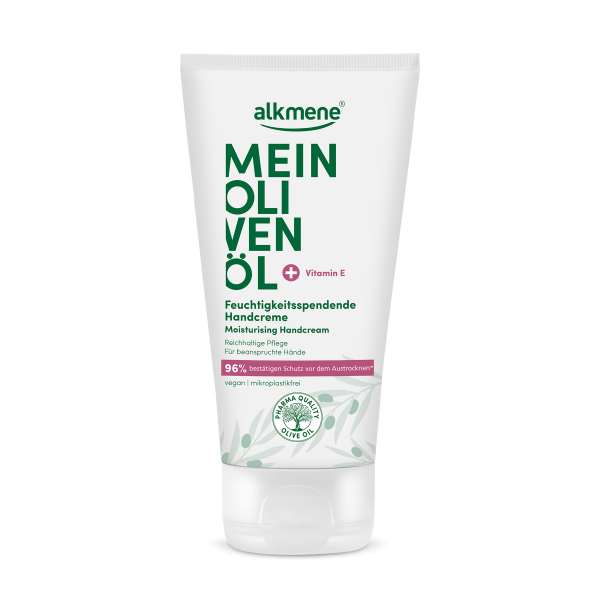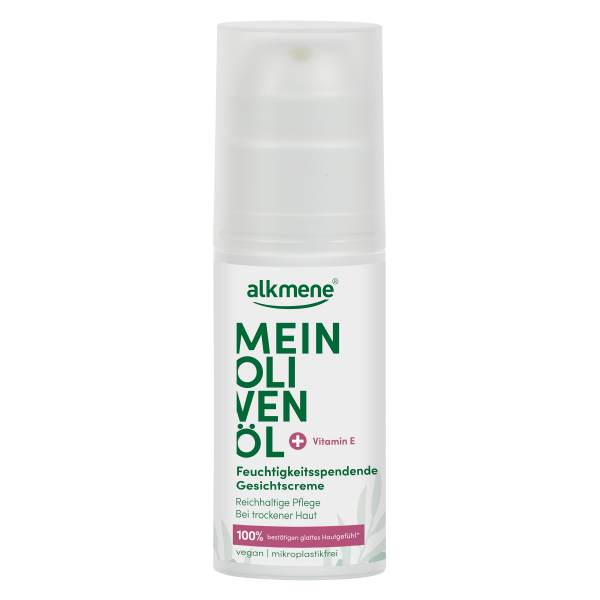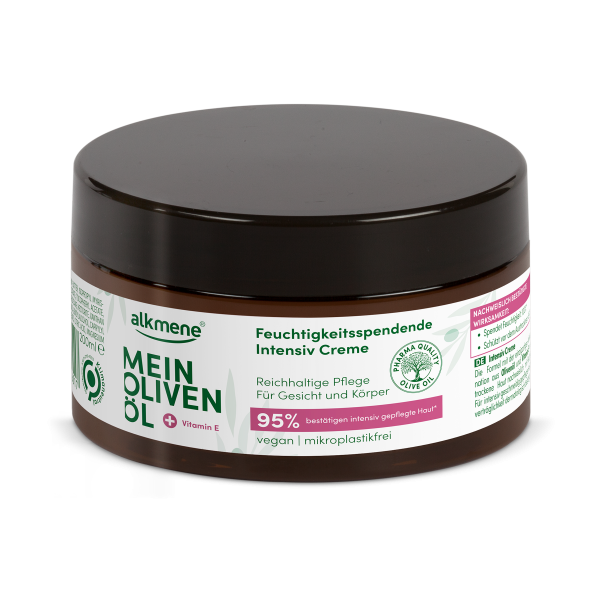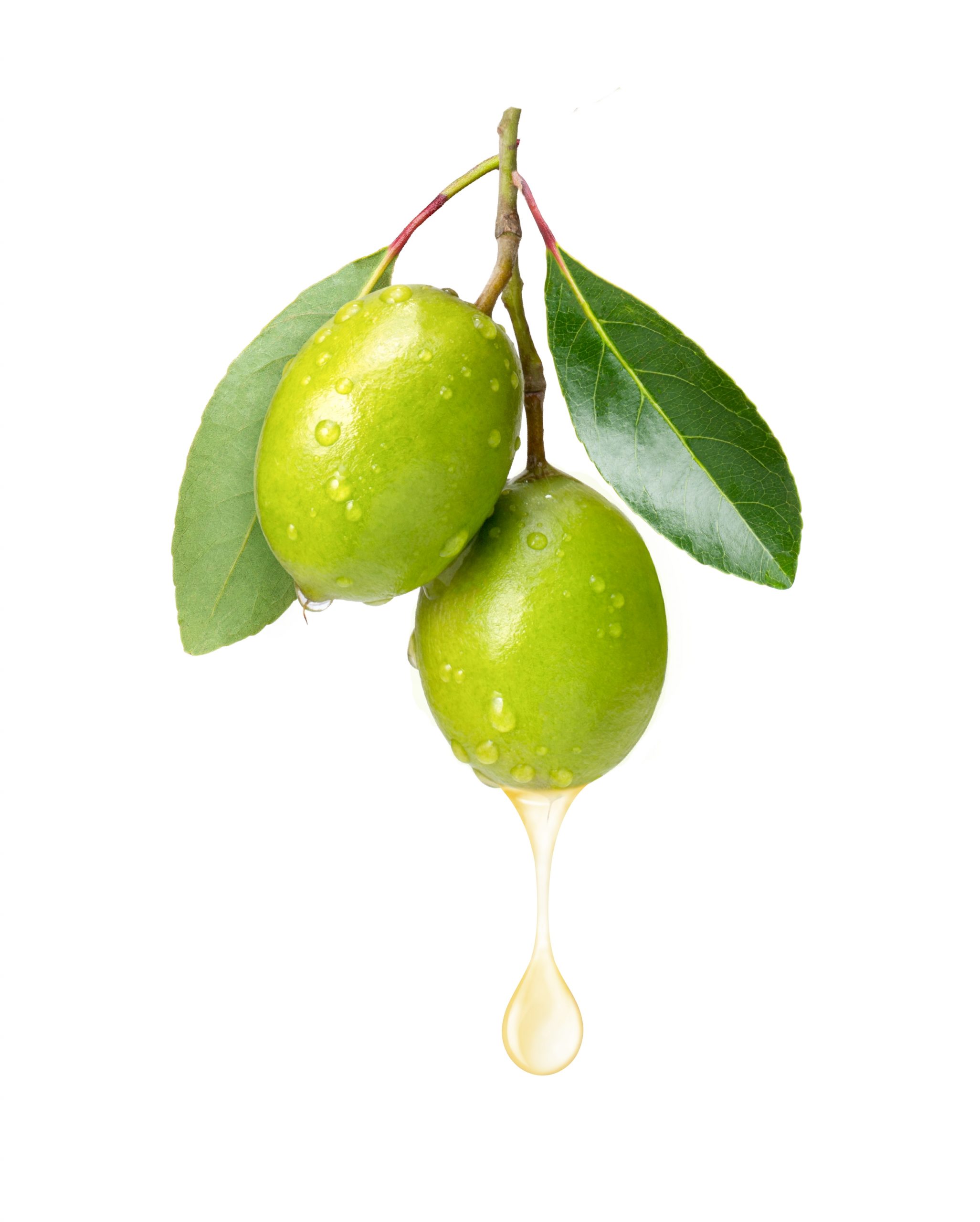
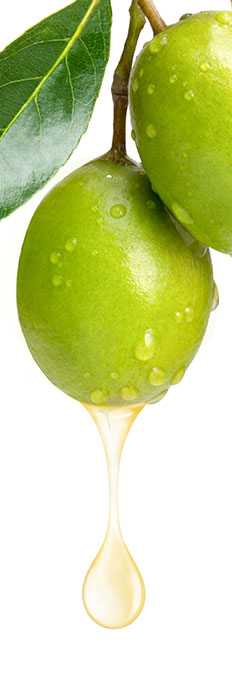
OLIVE OIL -
What kind of ingredient is olive oil, where does it come from and how is olive oil obtained?
Olive oil is a plant-based ingredient rich in nourishing substances. It is obtained from the fruit of the olive tree, extracted by gentle cold pressing. Rich in natural essential fatty acids, vitamins and antioxidants, it is known for its nourishing effect on the skin.
Olive oil is a fundamental element of Mediterranean culture and has been used for centuries not only in nutrition but also in skin care. It is rich in essential fatty acids, vitamin E and other skin-caring compounds. This unique composition makes olive oil an excellent ingredient for moisturising creams and other skin care products that aim to nourish, protect and regenerate the skin.
Due to its rich composition, olive oil provides a number of important building blocks for optimal skin care. The essential fatty acids contained in olive oil are ideal for dry skin. They also make the skin feel pleasant and soft and soothe stressed skin. A protective barrier prevents the skin from drying out. The vitamin E contained in olive oil also acts as an antioxidant, intercepting free radicals caused by everyday exposure to the sun, for example, and thus protecting the skin.
Olive oil is obtained by pressing olives, the fruit of the olive tree. There are various methods of extraction that can affect the quality and purity of the oil, including cold pressing and chemical extraction. For cosmetic purposes, cold-pressed olive oil is often favoured as it contains most of the beneficial nutrients and antioxidants without the use of chemicals or high temperatures that could destroy these components. The olive oil in the My Olive Oil range is obtained exclusively by cold pressing.
Once the sensitive skin of the fruit has been damaged, the process of degradation of the valuable ingredients begins (also known as “going rancid”). This means that, in addition to cultivation and climate, the harvest time is also of decisive importance for the quality of the oil. The fruit must not be exposed to excessively high temperatures during transport. The fruit must also not be damaged during transport.
Olive oil is one of the most counterfeited or stretched oils on the market. The quality and quantity depend heavily on the harvest and the climate of the respective season. Quality criteria originate primarily from the food sector. In supermarkets, you will often find labels such as “virgin” or “extra virgin”. There are also evaluation criteria in the pharmaceutical sector. These pharmaceutical criteria analyse the oil on the basis of a defined test protocol. Characteristic compositions of the olive as well as possible stretched oil components are determined. For our olive products at alkmene, we therefore use an extra virgin olive oil that is also assessed according to pharmaceutical criteria. Extra virgin is the highest quality of olive oil that you can buy. Only olives from the first harvest are used for this. In addition, the oil may only be obtained by pressing. During the entire process, neither the olives nor the oil are unnecessarily exposed to light, air or heat. This protects the important unsaturated fatty acids and vitamins contained in the olive oil from decay.
People with dry and stressed skin in particular can benefit from the positive effects of olive oil. Due to its nourishing and moisturising properties, olive oil is well suited to dry skin types. It can help to protect the skin from drying out and intensively moisturise the skin.
Olive oil is of course a recognised raw material for skin care. Nevertheless, the application differs from tea tree oil, for example, as found in our My Tea Tree Oil range. Olive oil is a very rich, heavy oil, rich in fatty acids. It is mainly used in intensively moisturising creams for dry skin. This is particularly important and nourishing in the cold months and for stressed, dry skin. However, the use of high concentrations or even pure olive oil in skin care is less recommended today. We therefore make sure to use a sufficient amount and balance it with other nourishing boosts such as squalane or vitamin E. In addition, all our products are dermatologically tested.
You will find olive oil above all in our creams in the My Olive Oil range.
